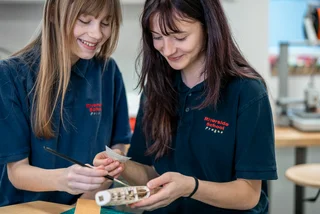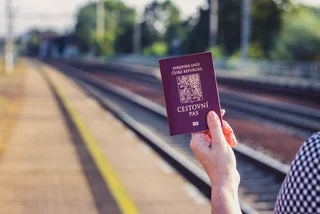Prague, May 21 (CTK) – Several hundred Czech Roma have returned to the Czech Republic from Britain out of fear of the coronavirus pandemic as well as over social uncertainties, loss of income, and disinformation spread on the internet, daily Lidové noviny (LN) wrote on Thursday.
“Since mid-March, some 350 Romas have returned to Czechia and others, up to 850, are seriously considering this. A majority of them have returned for good,” Tomáš Kostečka, head of the Comenius Czech school in Leeds, which is working with the local Roma community, told LN.
PARTNER ARTICLE
The Czech embassy in London says there is no reason for hysteria as the numbers of Roma leaving the UK for the Czech Republic are not dramatically high.
LN writes that the Czech Roma are leaving the UK as they have lost trust in its healthcare system during the pandemic, but also because they have lost jobs and housing.
The returnees do not present negative COVID-19 test results and they prefer staying in a two-week quarantine, mostly in their relatives’ homes as they do not have their own housing in the Czech Republic yet.
However, there is no threat of a mass, uncontrolled exodus of the Roma to the Czech Republic as the Czech expatriate communities in Britain are handling the situation and helping solve problems on the spot, LN says.
“Mostly, those without any links to expatriate organizations are leaving,” Kostečka told LN, adding that some 20 Czech expat associations operate in the UK.
Many Roma people face problems since they do not have valid personal documents and have not applied for settled status, which the British government requires from foreigners after Brexit. Moreover, they often worked illegally or via an agency, and thus they have no chance of getting the government aid granted over the pandemic, Kostečka explained.
The returnees, mostly whole families with children, are primarily going to their relatives in Czechia. They need not report their return to the local authorities.
Kostečka has also refuted the fears of these people bringing the COVID-19 infection to the Czech Republic, saying the disease is not widely spread among the Roma in Leeds.
Some fraudsters and “smugglers” are abusing the situation now, organizing illegal transports from the UK to the Czech Republic for often-exorbitant prices. They do not hesitate to charge some 10,000 crowns for a single ticket. Additionally, they are provoking panic by spreading disinformation videos released on the web, warning that the British government will take away Roma children, for instance.
“Paradoxically, they are driving Czech Roma back to the Czech Republic, but on the other hand, they transport Roma from Slovakia to Britain,” Kostečka said.
Moreover, the passengers are sometimes robbed during the trip to the Czech Republic or dropped off along the way, for instance in France, without aid, he added.
The integration of Roma returnees in the Czech society is complicated as the local Roma communities often do not accept them. Their children, who attended British schools, do not command Czech well or their language knowledge is not the same level as in the case of their classmates. This is why they often fail at Czech schools, Kostečka noted.
At present, there are a minimum of between 35,000-40,000 Czech Roma living in Britain, but those are just estimates as official figures are not available. The biggest Czech Roma communities are in Leeds, Sheffield, Liverpool, and partially Manchester.
The first wave of the Roma migration from the Czech Republic to the UK started in 1995, and a much stronger one burst out after the country’s EU entry in 2004, LN writes.












 Reading time: 3 minutes
Reading time: 3 minutes 
























